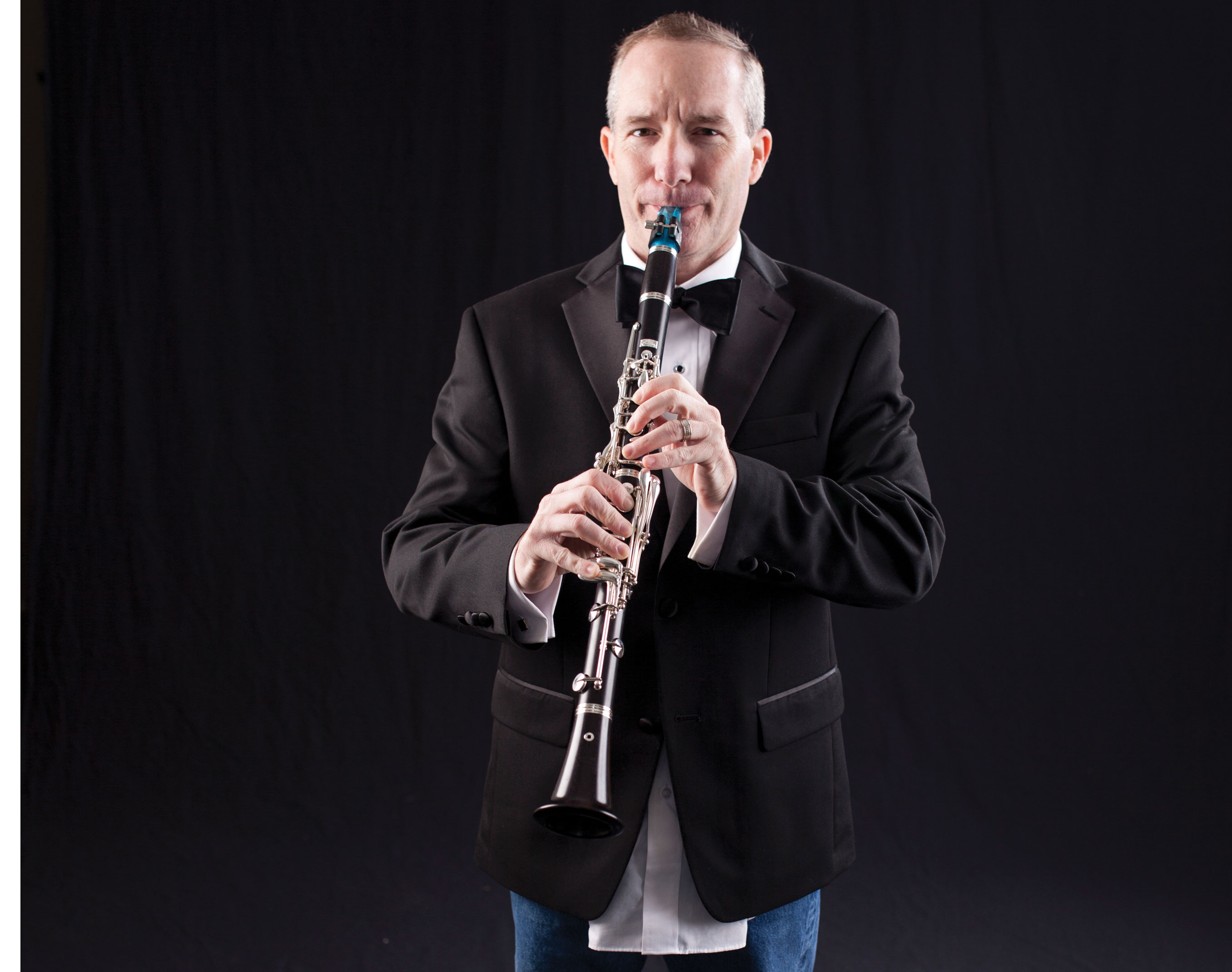Jaime Hamner: Music Gave Me A Career…and Music Gave Me A Retirement
Having grown up in California, Jaime Hamner started playing the
trumpet in third grade. But, he explains, “I was a little guy and that
was an instrument that required more air than I could produce at the
time, so they gave me a clarinet which I played through high school in
the band. After graduation, I was tired of school, and thought I would
become something in the music world when I auditioned for the Marine
Corps Band. I thought I would do that for four years and then go to
college, but I had so much fun that I decided to do it for another
four years, and I just kept going. I retired after twenty years of
honorable and faithful service.”
Articulate, good natured, and incredibly focused, Jaime is now a
repairman for all woodwind and brasswind instruments.
“I grew up with music; my dad played the guitar and sang, my mom
sang in the choir. We always had music in the house.” Music, for
Jaime, continued to be the tie that binds; he met his wife Debbie in
the Marine Corps in Okinawa. They both played clarinet; he went on to
become a repairman, she to be a conductor. Eventually they were
transferred to Parris Island and Beaufort is where he retired. Their
children, Danielle, age fifteen, and Nicole, thirteen, are both
musical as well. Danielle sings in the Beaufort High choir and Nicole
is a gifted clarinet player at Lady’s Island Middle School.
The transition from playing in the Marine Corps Band to repairman
occurred, Jaime recollects, “When I stepped off to perform at the
change of command at Camp Lejeune playing clarinet, dressed in
cammies, a helmet and deuce gear. It was over 100 degrees outside.
During that 2 ½ hour ceremony, I realized that I wanted the job of the
instrument repairman, who happened to be back at the band hall fixing
horns. I decided a career in repairing the instruments would be good
idea and started apprenticing at Camp Lejeune under Chris McNally.
The Marine Corps sent me to Red Wing MN for a year long course to
learn the trade. Because we only used professional instruments, it
was important that I had a solid foundation of instrument repair
skills prior to my schooling to ensure that I had the opportunity to
learn advanced techniques while at Red Wing.
“After I retired, I decided that I could give back to the
community what helped me have a successful career, music. Nothing is
more frustrating for a musical student than an instrument that does
not play correctly. Often, the young musician assumes it is his or
her ability, not the faulty instrument, and quits the music program
out of frustration. With music programs being cut because of
diminishing budgets, band directors are having to do more with less. I
am here to help them do their jobs by fixing their instruments
efficiently and at a very reasonable price. I try to have fast turn
around times because it is so important for these instruments to be in
the student’s hands, not a repair shop.” Currently Jaime is the
President of National Association of Band Instrument Repair
Technicians, the largest non-profit international educational
association dedicated to the advancement of the craft of band
instrument repair.
Jaime takes a French horn, which a Marine has sent to him to
repair, out of the box and removes a significant amount of bubble
wrap. Jaime expects, from the Marine’s description of the damage, for
the horn to be just short of mangled. Actually as he inspects it,
“It’s not so bad” he says with relief. “Little dings happen to
instruments over time, usually made by other musicians. This would be
about a $300 repair, but this guy is a former Marine, we served
together in Okinawa, so I’m not going to charge him. There is a dent
along the edge, I can fix it so you won’t see it but it will totally
change how the horn sounds. Once the damage sets into an instrument,
no matter what the repair, it will forever change the sound.”
He’s seen much worse, and no matter what the extent of the
damage, Jaime can fix it. “In repair, we use all kinds of tools from
all kinds of different industries; my business partner Andreas always
kids that I have all the fancy tools and I’m fast. I can make
anything, even the tiniest screw.” As an aside, he confides,
“Repairmen should wear bio-suits! The horns may not have been cleaned
out prior to them coming in for repair and all sorts of green ooze
often drips out!” At the moment, his repair shop is in a spare bedroom
in his house, which he finds convenient, as he says jokingly, “If I
get tired while working, I can always lie down for a nap.”
It’s interesting to watch him assess the extent of the damage to
an instrument. He may insert a light down into the horn so he can see
from the inside out, “With the light, I have a very easy visual on
whether or not the pads will close.” The image creates an almost
eerie, but artistic, effect. In the near future Jaime will partner up
with Andreas and Victoria Moe, both instrument makers, and open a full
service music store and repair shop in Bluffton. “In the new store, we
will offer all the essential needs for our local musicians and provide
professional repair services with a quick turnaround time and
reasonable prices. This is just another way for us to give back to
the community. We are in a place where we can do this for our love of
music, not just to make a buck!”
In order to make the necessary repairs, Jaime explains “I have to
be able to play all of the instruments to know if I’ve fixed them;
however I only play the clarinet and saxophone professionally.” He
plays with the Sun City Band and Chorus, “I would like to play more
but I only have the time to donate to one band. Debbie started playing
with them also.”
Jaime is also very involved with the Sea Island Presbyterian
Church youth group, “I like to volunteer and work with kids. They are
our future and are in great need of strong mentors. I like to go
boating, hunting and fishing, but between opening a new business, my
current workload, and my volunteer work, I just don’t have much time
for that right now.”
Aside from being a musician himself, Jaime recognizes the need
to the band to play on; “Music is dying out, instruments are
expensive and the market is being flooded with cheap Chinese
instruments. Good instruments will last a very long time. Music gave
me a career and music has given me a retirement.” To this end is one
of the reasons that Jaime is very involved with the Junior Jazz
Foundation which is “the philanthropic outreach effort of The Jazz
Corner on Hilton Head Island, SC. We believe that the original
American art form of jazz music is important. Our focus is to educate
and enable young musicians in our community by supplying instruments,
scholarships, classes and seminars.” (For more info see:
juniorjazzfoundation.org)
“They found me, I got a call from Lois Masteller at The Jazz
Corner asking if I would work on the donated instruments. They were
willing to pay me, but I donate my time and they pay for the parts.
People donate instruments to the Foundation and then they are given to
students who need them throughout Beaufort County. Some of the
instruments are wonderful and may be worth a couple of thousands of
dollars, others are not in great condition.” He repairs about 20 or 30
a year, but graciously that number is increasing due to increased
awareness of the program. “It’s important that students have good
instruments; this could be a deciding factor if they remain in music
or not. High school students might have a better chance of attending
college and improving their lives if we can continue to give them an
opportunity to succeed with these donated instruments.”
story by mary ellen thompson
photography by john wollwerth



